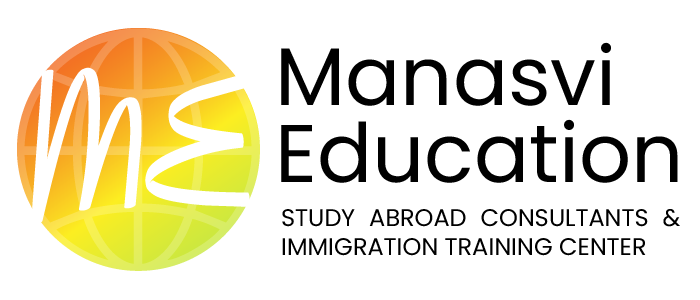This is page header
This is page content
FREE STUDY ABROAD COUNSELLING - APPLY NOW FOR 2024 INTAKES
Book your FREE consultation with Certified Counsellors
SERVICES WE PROVIDE
- Virtual & In Person Coaching and Counselling
- Comprehensive Assistance for Applications, Admissions & Visas
- High Value Scholarships and Study Loans
- An analysis by the Consortium for Analysis of Student Success through International Education (CASSIE) found that those who studied abroad were 6.2% more likely to graduate in 4 years and had an average GPA 0.16 point higher than those who did not study abroad.
- Study abroad can be particularly impactful for first-generation students and underrepresented minorities, with those who study abroad 11.6% more likely to graduate in 4 years and earn a 0.12 higher GPA than similar students who did not study abroad.
- In a study of AIFS Foundation AYA alumni, more than 90% said that participating in a secondary education exchange program developed or improved key skills for post-secondary education and entry to a global workforce.
- A study by SIT of their program alumni found that a 72% reported that their study abroad experience significantly impacted their career choices and helped when applying for jobs.
- According to the World Economic Forum Future of Jobs Report (2020), employers rated critical thinking and analysis, problem-solving, and self-management as the most critical skills for the global workforce moving into 2025.
- Employers increasingly see international internships as a key recruitment pipeline and way to identify globally aware and competent employees. In 2018/19, approximately 25,000 U.S. students worked abroad or completed an international internship for credit.
- 85% of study abroad alumni of IIE-administered programs list their international experience on their resume and 73% discussed aspects of their experience during job interviews.
- AIM Manasavi reported “61% of employers agree that an Manasavi study experience is [positive] on a resume. Additionally, 72% of employers agree that knowing a second language adds to the appeal of a prospective employee. The same study reported 95% of students found the exchange experience as useful with regard to their future career plans.
- Based on responses from 13,0000 hiring managers and CEOs, the 2020 QS Global employer survey found that 25% of respondents said that international experience was a recruitment priority.
- Study abroad alumni have better job prospects. Based on a survey conducted by IES Abroad, 67% of study abroad alumni found their first job within six months of graduation.
-
1. Is Studying Abroad A Good Decision?
A must if you are planning to study abroad. Because it offers new opportunities to new people and allows you to get to know different cultures. Studying abroad makes it easy to travel around the world without many immigration problems.
-
2. Can I Study Abroad?
Yes, you can. However, there are certain requirements and eligibility criteria stipulated by a number of universities and scholarship bodies before you can study abroad.
-
3. I Am Below 18 Can I Still Study Abroad?
yes you can If you are under the age of 18, your parent or guardian must write a letter stating that you are planning to study abroad and are funding your studies.
-
4. Which countries can I choose from?
We represent universities, schools and colleges in Australia, Canada, New Zealand, and the United Kingdom, Ireland and the United States of America.
-
5. When can I go?
As soon as you decide on the reason to go, you can choose to go. Depending on the various universities, the application deadlines will vary. The applications open in the early year of January and February until the mid of the year June and July. The programs usually start – off during the fall of September and October.
-
6. How do I apply?
Our experienced counsellors will help you prepare and certify your supporting documents. The counsellors will then submit your application to the college or school of your choice on your behalf.
-
7. How long do study abroad programs take?
It depends on how much you are aiming for. If you plan to study full-time, it will take about 3-4 years to get a bachelor’s degree. Especially in the UK, most subjects are 3 years. In the United States, this topic lasts for four years. A master’s degree takes about a year or two. A PhD or PhD takes about 3-4 years.
-
8. Do I have to speak a second language to study
abroad?
This depends on the country you wish to study in, and the language your course will be taught in. If you’re not a native English speaker but wish to study a course taught in English, you will have to prove you can speak the language to a fairly high level, by providing English-language test results. This is to ensure you will be able to follow your course without any comprehension problems.
English is also used as a language of instruction in a number of other countries worldwide, particularly for graduate programs and business degrees. English-taught courses will be advertised on the university’s website and can sometimes be searched for using a centralized database run by a national agency. Common English language proficiency tests are TOEFL and IELTS. If you need to prove your knowledge of a language other than English, there are similar tests in other languages such as DELF/DALF and TCF-DAP (French) or DSF and TestDaF (German).
Before taking a language test, make sure that your chosen school accepts the results so you don’t waste money on the wrong test.
-
9. What are the entry requirements for study
abroad programs?
Entry requirements vary widely between universities and between countries, so be sure to check the information provided by your prospective university before submitting anything.
Speaking generally, however, if you are applying for an undergraduate degree you will be asked to show that you have completed your secondary education to a standard that is in line with the required grades (e.g. your GPA, A-level grades or equivalent) for the program you’re applying to. If you have an international qualification and are unsure whether this is accepted, you should contact the admissions department of the university.
For non-native English speakers wanting to study in English-speaking countries, it is also highly likely that you’ll need to provide proof of your English-language proficiency by taking an English-language test such as TOEFL or IELTS. Similar tests may be required for those studying in other languages. See question 8 for more information on language testing.
-
10. What Are The Documents Needed To Study
Abroad?
- Birth Certificates
- SSCE Results (Certificate and Statement of Results)
- BSc Certificate or Statement of Results (For Post Graduates)
- Academic Transcripts
- Valid Means of Identification
- Reference Letter (Personal and Academic)
- Recommendation Letter
- Essay Write-ups
- Personal Copy of your Essays (Differs from Schools)
- GRE/GMAT or TOEFL/IELTs (Differs from Schools) and etc.
-
11. How much does it cost to study abroad?
To work out the cost of studying abroad, you need to consider the average tuition fees for international students in your chosen country, as well as the cost of living.
As a point of reference, the average tuition fees for international students studying in the UK start at £10,000 (~US$14,200) a year, with an additional £12,180 (~US$17,300) per year needed to cover living costs (with more needed if you study in London).
In the US, the average yearly tuition fee is US$25,620 at public universities and $34,740 at private universities with an additional recommended budget of at least $10,800 to cover your living costs. With these yearly figures in mind, remember that undergraduate programs in the US tend to last a full four years.
In some countries, there are no tuition fees at all. Germany and Norway are examples.
-
12. Is It Possible To Work Why Studying
Abroad?
This will depend on whether or not your student visa allows you to work. In some countries there are restrictions on the amount of paid work you can undertake during your studies. Often there’s a limit of 20 hours’ paid work per week during term time, with full-time work permitted during holidays.
If you don’t need a student visa, it is more likely you’ll be able to work as many hours as you like, as long as this doesn’t affect your studies – but check with the university and/or official government site. If you do work during your studies, it’s not a good idea to rely on your wages to fund living costs, and in many cases you’ll need to prove you already have enough money to support yourself when you apply for your visa.
-
13. Where can I find study abroad
scholarships?
Study Abroad Scholarships can be found in several places. Your first port of call is the website of the university of your choice, where you can find information about available scholarships. Sometimes universities also list external scholarships, such as those offered by the government or the school’s business partners. If not, you should look at the government plans of your country and country of study and the funding provided by external organizations related to your field of study (eg, engineering companies may offer scholarships to engineering students).
-
14. Can I get financial aid to study abroad?
Although many international students may find it difficult to get a student loan to fund their studies, there are a myriad of other funding opportunities available to make studying abroad more affordable, including scholarships, fellowships, studentships, sponsorships, grants and bursaries.
Your chosen university is perhaps the best place to get funding information relevant to you, so make sure to scour the school’s website for advice or contact the school directly. This is also where information about study abroad scholarships offered by the university and other external organizations can be found, along with details regarding eligibility and how to apply.
-
15. What Is A Conditional Offer Letter?
A conditional offer letter is a letter sent to you by a university when you have been approved to study at that institution but still need to submit some documents. You may be required to submit an English test or foreign passport if missing from the original application. In some cases, it may be stated in the letter that an additional English language course, foundation program, or postgraduate certificate program must be completed prior to admission to the chosen program.
-
16. Can I Study Abroad Again, if I have Studied
Abroad Before?
Yes you can. There is no limit to the number of times you can study abroad as an international student. As long as you have the required documents, you can keep studying abroad.
-
17. How Do I Correctly Submit My Transcripts To
A University Abroad?
In general, international schools prefer to request that they send official transcripts directly to the previous school. Some schools may ask you to scan and send them online.
-
18. How Do I Correctly Submit A Letter Of
Reference?
Put in the name or names of the person you want to write you a reference letter on your application form, the university will now send them an email with a link where they will submit the reference letter. Note that you are not submit the letter by yourself, unless the school states otherwise.
-
19. When Can I Make Arrangements For
Accommodation?
This should be done immediately you receive the application letter to study. Start making arrangements so that you won’t be stranded abroad.
-
20. What Do I Do If My Visa Expires?
Student visas have a limited validity period. Once expired, you can apply for an extension if you are still studying there, or prepare to return or go to another country.
- Factors to consider when ascertaining the cost of studying abroad for Indian students
- Cost of studying abroad for Indian students in Rupees
- Cost of living Manasavi
- What to do if studying abroad is expensive?
- Tuition fees: This is one of the major elements of your study abroad expenses and depends upon three factors: country, programme, and university.
- Accommodation cost: After tuition fee, accommodation cost is the second-largest expense. Many study programmes offer on-campus accommodation facilities; sometimes, students stay in rented places. Based on the kind of accommodation and location, the cost varies.
- Travelling cost: You must factor in travelling cost, especially if you have chosen off-campus accommodation. Moreover, costs incurred while exploring the surrounding places during holidays must be included when determining the overall Manasavi education cost.
- Cost of learning devices: Consider the cost of learning devices such as laptops, notepads, printers, etc., while estimating the cost of education for studying abroad.
- Cost of study material: Expenditure made on buying study materials and other documents affects the overall cost as these recurring expenses.
- Living cost: The living cost is a broad term and generally includes the expenditure on food, clothing, and related needs.
- The United States of America (USA)
- The United Kingdom (UK)
- Canada
- Australia
- Germany
- Be an Indian citizen
- Have attained a High School Diploma or have a GED Certificate
- Have family income (From all sources) of less than INR 6 lakh per year
- Have a minimum score of 6.0 bands overall in IELTS
- Have applied to a full-time program of at least one year
- Complete the college admission procedure through Manasvi International Private Limited or one of its authorized partners
- Have completed the University/College admission procedure with Manasvi or at least with one of its authorized partners
- Have admission from a valid higher education institution in the USA, Canada, the UK, Australia, New Zealand, Germany, France or Singapore
-
Why study abroad?
Studying abroad opens better opportunities for students in the form of career prospects and a higher standard of living. The chance to study at top-ranked universities adds authenticity to your academic certificates and helps you stand out from the crowd in the job market.
-
What questions should I ask about studying
abroad?
When you decide to study abroad, there will be several questions you need proper answers to. A few of them will be regarding the cost of living and studying in the country, post-study work permit, visa procedure, health insurance coverage, funds required in the home country etc.
-
What are the things to consider when
studying
abroad?
When you decide to study abroad, you should consider the costs that can incur in several aspects, the scholarships offered etc.
-
Why do Indian students study abroad?
Indian students study abroad so that they have better career opportunities and course options to choose from. Another reason is that it is easier to immigrate to a country if you study there.
-
What skills are gained from studying
abroad?
You will gain a few skills if you choose to study abroad. A few of them include communication skills, adaptability, self-awareness, cultural awareness etc.
-
What documentation should I submit with my
application?
When you apply to a foreign university, you will be required to submit a few documents like academic transcripts, Letters Of Recommendation (LORs), Statement Of Purpose (SOP), proof of funds in your home country, updated CV/resume, English proficiency and subject-specific test scorecards etc.
-
How long do study abroad programs take?
The length of your study abroad program depends on the course and program of study you choose. Certificate and Diploma programs have a shorter duration of a few months, Bachelor’s programs take 3-4 years, Master’s programs take 1-2 years, and PhD programs take around 5 years to complete.
-
Which are the best countries to study
abroad?
The USA, the UK, Australia, Canada, Germany, Ireland, New Zealand, Dubai etc., are some of the best countries to study abroad.
-
When can I start applying for study abroad
programs?
You should start planning to study abroad at least one year before you wish to go abroad. The applications start months before the start of the application, and you will have to arrange the documents as well. As such, it is essential that you plan early.
-
What are the entry requirements for study
abroad programs?
The entry requirements for study abroad programs can vary based on the program, course and university you choose. However, you will need a good academic score, English proficiency test score, passport etc.
-
Do I have to speak a second language to
study abroad?
It is essential to know a second language like English to study abroad. Additionally, most top universities require you to have a good English proficiency test score to get admission.
-
Will I need to attend an admission
interview?
Yes, in most cases, you will be required to attend an admission interview for admission to top universities abroad.
-
After gaining a letter of acceptance, what
should I do next?
After you get a letter of acceptance from your university, you can start arranging for health insurance, a student visa etc.
-
Do I need to apply for a student visa?
Yes, you are required to get a student visa to study at any international university. You can start applying for it after you get your letter of acceptance from your university.
-
How much does it cost to study abroad?
The cost of studying abroad differs from one country to another. However, you can expect an average annual expense ranging from INR 15,00,000 to INR 40,00,000.
-
Can I get financial aid to study abroad?
Yes, you will get financial aid in the form of scholarships, fellowships and educational loans to study abroad. These will be funded by the government, universities, private institutions etc.
-
Where can I find study abroad
scholarships?
You will find university-funded scholarships on the official website of the respective universities. You can visit our scholarships page for more scholarships that are funded by the government and other private organisations.
-
Where will I live during my study abroad
program?
Most top universities offer in-campus accommodation to their students. Depending on your spending capacity, you can also choose to stay in shared apartments outside the campus.
-
Can I work during my studies abroad?
Yes, international students can work part-time for up to 20 hours during their course. However, this is subject to change based on the country.
-
Will my Manasavi qualification be accepted
in my home country?
Yes, your Manasavi qualification from all top countries and universities will be accepted in your home country. In fact, your degree will be highly revered.
-
Will studying abroad help me find a good
job?
Yes, studying abroad will surely help you find a good job. Your academic certificates will be highly revered and will help you stand out in the job market.
-
Do I need an education agent?
Yes, having an education agent is helpful as they can guide you through the entire process of applying for your preferred course at your favourite destination and university. You can contact study-abroad experts like Manasvi for free assistance.
-
Does it cost to see a counsellor at Manasvi?
No, all services provided by Manasvi, including counselling, are offered free of cost. You will get assistance on everything you need to know about studying abroad.
-
What ongoing support does Manasvi give?
The ongoing support offered by Manasvi includes education counselling, scholarship guidance, visa application and student health insurance assistance etc.
-
How can the Indian embassy help me during my
stay abroad?
The Indian embassy has a crucial role to play during your stay abroad. Within 24 to 48 hours of reaching the country, you should register yourself with the Ministry of Internal Affairs, which legalises your stay in the country. You should additionally register temporarily at the Indian embassy.
-
When do I have to start repaying my student
loan?
You should start repaying your student loan when your studies are completed or six months after you get the first job, whichever is earlier.
-
Can students get travel insurance?
Yes, students can get travel insurance, and it is also advisable to have one. You will thus be insured in all aspects during your travel like baggage loss, medical expenses etc.
-
Can I renew my student visa abroad, or do I
have to visit India to renew my student visa?
In most cases, you will be able to renew your student visa abroad, and you may not be needed to travel to your home country. However, there can be changes based on the country you study in. As such, it is essential that you have a clear understanding of it before you start your journey abroad.



Realize your global ambitions with us
With a keen ear for your choices and preferences, our counselling experience is so seamless that you will land in your dream university even before you do!
WHY STUDY ABROAD
Globalization has changed the way the world works, and it is increasingly critical to have cross-cultural competence and cutting-edge technical skills in the market for today and in the future.
PricewaterhouseCoopers predicts that by 2050, the E7 (China, India, Brazil, Russia, Indonesia, Mexico, Turkey) will be more than 50% larger than the G7 countries (the U.S., UK, France, Germany, Italy, Canada, Japan) when measured by GDP at market rates. The National Intelligence Council’s “Global Trends Report 2030” projects that China will surpass the United States as the world’s largest economy by 2030. A study by the British Council, entitled Culture at Work, shows that employers are under strong pressure to find employees who have both technical knowledge and “soft skills” such as critical thinking, problem solving, time management, and communication, deemed necessary for success in a global workforce.
Many employers feel that “graduates are leaving school unequipped with the skills necessary to function successfully in the workplace.” Many reported gaps in technical skills and soft skills like communication, problem-solving, and teamwork – key skills that study abroad develops. IIE’s Gaining an Employment Edge study found that over 70% of students reported that their study abroad experiences significantly helped develop their intercultural skills, flexibility and adaptability, self-awareness, curiosity, and confidence.
Study abroad is one of the best ways to acquire global skills and access personal and professional opportunities.
Study abroad is a life-changing experience for many students, opening their eyes to different ways of life and promoting understanding and tolerance. From elementary through post-graduate education, global engagement and exposure can profoundly change a student’s life. By looking at research on the more directly quantifiable aspects of study abroad impact, studies show students who study abroad have better grades, experience less attrition, and graduate from college at higher rates than students who do not study abroad.
Employers also recognize the value of study abroad to develop workforce skills.
IIE’s Generation Study Abroad provides resources to students, parents, and international education professionals who are engaging in study abroad and making the case for its significant value. We must ensure that this generation and future generations of the U.S. workforce possess knowledge of other countries and cultures and are competent in languages other than English. It is more important now than ever for students to gain global competency skills so that they can succeed in the global marketplace.
From IIE’s STUDENT GUIDE TO STUDY ABROAD
“The ability to work across cultures is no longer a nice-to-have skill set for elite executives; every year it becomes more essential to finding any job at all. A machine operator at a plant in Topeka that exports aircraft parts to Brazil needs to know how to interact effectively when Brazilian customers come to visit. A nurse’s aide at a Houston hospital that serves a large Hispanic community has to communicate with family members in ways that encourage rather than discourage patient compliance.”
Stacie Nevadomski BerdanCo-author and international careers expert
“The beauty of studying abroad is gaining a broader understanding of other cultures. Having access to other people and building relationships with those people on their home turf enables one to think more creatively and flexibly, necessary skills in today’s competitive work environment. If a student can bring that understanding and knowledge back to the USA, the sky’s the limit!”
Frank AbateDivision Manager, JM&A Group
“As a 35-year old, I believe that my generation is the last one to be able to use global experience as a differentiator. Globalization has now become a requirement to compete and succeed.”
Adam MichaelsPrincipal, Booz & Co.
GUIDE FOR PARENTS
All you need to know when sending your child to study abroad
Honestly, that’s one of the bravest decisions you’ll ever make, and yes, the most crucial one for your child. Studying abroad means your child has access to the best faculties, world-class education and a global mindset. As a parent, it is your responsibility to support your child in this decision. So, gear up to be a part of this fruitful journey.
What you need to do as a parent
Know what motivates your child. As a parent, be an active part of their decision-making procedure to support them and ensure they make the right calls in life.
1. Discuss goals openly
Sit down and understand why your child wants to go abroad – whether it is career-driven or personal. It is important to know what exactly your child seeks in life to be able to guide and support them.
2. Stay informed
Take part in research about the courses they are interested in, universities they have been talking about and the kind of lifestyle they would most thrive in. This research will also include information on course curriculum, campus life and accommodations options available abroad.
Read more: How to choose a course | How to choose the right destination
3. Consider your challenges
Reach out to friends and family whose children have gone abroad. Ask them about the challenges you are likely to face and figure out how to deal with them. The thumb rule for this is “be as specific as you can” and ask all your queries.
4. Seek professional counselling
IDP has been helping students pursue their international education dreams for more than the last 50 years. If you have any doubts or concerns, we are more than happy to help you.
5. Know how much you will have to spend
Having an estimate of the costs involved in sending your kids abroad can help you make a better decision. However, it’s not just the tuition fee alone you should be calculating in your budget. Do weigh in other expenses such as accommodation, food, health coverage, communication and travel as well!
Our guide on the overall cost of studying can help ease your financial budgeting for your child’s stay abroad.
6. Make a detailed plan
Now that you have an overview of what goes into sending your child abroad, plan. Consider all factors including course and university selection, finances, visa, etc.
Once you have decided where your child would study and pursue which course, remember to consider:
7. Health comes first
Ensure to get your child’s general physical examination, dental check-up, and a gynaecological check-up (if applicable). If required, ensure they have all the relevant shots and boosters.
Read more: Health and support services for international students
8. Travel safety is crucial
Yes, it’s worrisome to send your child thousands of kilometres away, and that’s why it is important to ensure their travel safety. Ensure your child is insured before they leave and sign up for a safety program.
You can check more information on your child’s travel safety to understand what’s best for them.
9. Plan your visits
Once your child has settled abroad, discuss with them and plan your visit abroad. This will help you spend some quality time and also give them that emotional support they need while adjusting in another country.
10. Keep in touch
It is important to stay connected with your child abroad as settling in a new country can be quite overwhelming. They’ll need both – your emotional support, as well as your guidance before they are settled properly.
Read more: 8 simple ways to keep connected with your child abroad
If you still have any concerns and need to be sure about sending your child abroad, schedule a free counselling session to discuss their career path. with us.
Get FREE Counselling Today
ARE YOU READY TO APPLY?
Planning where you want to study abroad can be difficult and arduous. If you've finally decided to take the next step, you just need to get all the information you need.

WHAT IS THE COST OF STUDYING ABROAD FOR INDIAN STUDENTS

As per the Bureau of Immigration (BoI), nearly 6.5 lakh Indian students went abroad for educational
purposes in 2022. And experts believe that Indian students going abroad for
education is not a new trend. This trend has been gaining
popularity with time owing to factors like quality education, exceptional prospects for research and
excellent job opportunities.
Indeed, studying abroad is a once-in-a-lifetime opportunity but heavy on pockets also. You need to weigh
the cost factor while planning your study abroad journey. So, if you want to know
the approximate cost of
education (including tuition and living expenses) in popular Manasavi countries, this blog will help
you.
Key Highlights
Factors to consider when ascertaining the cost of studying abroad for Indian students
Feel free to use College Course Expense Calculator to get an estimated cost of your course at an international destination.
Cost of studying abroad for Indian students in Rupees
The top 5 study abroad destinations for Indian students are as follows:
Now, let’s take a country-wise look at the top 5 courses and their tuition fees:
The USA
|
Course Name |
Approximate annual tuition fee (in Rupees) |
|
Master of Business Administration (MBA) |
50-68 lakh |
|
MS in Data Science |
15-55 lakh |
|
MS in Computer Science |
21-60 lakh |
|
MA in Art & Culture |
20-45 lakh |
|
MS in Marketing |
36-65 lakh |
The UK
|
Course Name |
Approximate annual tuition fee (in Rupees) |
|
MBA |
25-70 lakh |
|
MS in International Business |
14-29 lakh |
|
MS Mechanical Engineering |
20-37 lakh |
|
MA Fashion Marketing |
17-45 lakh |
|
Master of Architecture |
21-45 lakh |
Canada
|
Course Name |
Approximate annual tuition fee (in Rupees) |
|
MS in Information Technology |
9-30 lakh |
|
MS in Civil Engineering |
12-30 lakh |
|
MBA |
19-25 lakh |
|
Masters in Hospitality Management |
8-12 lakh |
|
Advanced Diploma in Aviation Technology |
9.5-30 lakh |
Australia
|
Course Name |
Approximate annual tuition fee (in Rupees) |
|
MBA |
25-50 lakh |
|
Master of Information Technology |
11-30 lakh |
|
Master of Education |
14-34 lakh |
|
MS in Social Work |
19-53 lakh |
|
MS in Data Science |
19-50 lakh |
Germany
|
Course Name |
Approximate Annual tuition fee (in Rupees) |
|
MS in Automotive Engineering |
10- 25 lakh |
|
MS in Economics |
11- 24 lakh |
|
MS in Computer Science |
11-23 lakh |
|
Executive MBA |
18-36 lakh |
|
MS in Biochemistry |
11-23 lakh |
Based on the selected country, programme and university, the tuition fee may vary for
Indian students. Amongst all aforementioned foreign countries, studying in German public universities is
affordable as German public universities charge either minimal or no tuition fees.
Cost of living Manasavi
The USA
|
Expenses |
Monthly Expenditure (In Rupees) |
|
Accommodation |
66,520-75,316 |
|
Meals |
20,355-48,852 |
|
Other living expenses |
12,213-16,284 |
The UK
|
Expenses |
Monthly Expenditure (In Rupees) |
|
Accommodation |
42,420-71,710 |
|
Meals |
64,640-80,800 |
|
Other living expenses |
23,449-26,705 |
Canada
|
Expenses |
Monthly Expenditure (In Rupees) |
|
Accommodation |
15,195-42,546 |
|
Meals |
18,234-24,312 |
|
Other living expenses |
10,940-12,156 |
Australia
|
Expenses |
Monthly Expenditure (In Rupees) |
|
Accommodation |
20,880-1,02,080 |
|
Meals |
18,560-58,000 |
|
Other living expenses |
16,240-58,000 |
Germany
|
Expenses |
Monthly Expenditure (In Rupees) |
|
Accommodation |
26,700-62,300 |
|
Meals |
13,350-22,250 |
|
Other living expenses |
26,700-40,050 |
What to do if studying abroad is expensive?
Studying abroad is a life-changing experience but also expensive. But by choosing an education loan for
studying abroad, you can easily meet your academic expenses without using your family’s savings.
At Avanse Financial Services, we offer a customised student loan in India that covers all education-related expenses such as tuition fees, cost of travelling, accommodation costs, living expenses, and cost of learning devices. So, if you have any queries, please get in touch with us today to know more about a loan for education.
#Scholarship
THE MANASVI SCHOLARSHIP PROGRAM FOR EXCELLENCE
With over 1200 scholarships and prizes available, the University of Melbourne will assist high-achieving international students as they strive to solve tomorrow's problems through bold, creative thinking. You'll join a collaborative network of students and academics and contribute to the University's 170-year history of shaping positive change across the globe.

Manasvi Education Scholarship Program
Manasvi is privileged and honored to sponsor the ‘Manasvi Scholarship’ program.
The ‘Manasvi Scholarship’ program offers genuine opportunities to deserving study abroad aspirants to not only cover a substantial part of their tuition fee for their respective programs at reputed Universities and Colleges in the USA, Canada and the UK, but also takes care of the expenses related to accommodation for the duration of the studies.
To be eligible, the candidate should
How it Works
Step
01
Profile Assessment
Submit the most fundamental details such as your full name, contact number(s) and email address. Our counsellors will assess your profile and help you with the further application process.
Step
02
Application Process
Complete the application form for Scholarship and submit it to Manasvi. You will also be required to submit a short essay where you will substantiate your candidature for the scholarship.
Step
03
Document Submission
Candidates selected at this stage will be scheduled for an interview with our scholarship committee, who will take the final decision about awarding the scholarship to you.
Step
04
Scholarship Offering
Scholarship winners will be informed about the amount of scholarship they are awarded along with the name of the program and institution.

